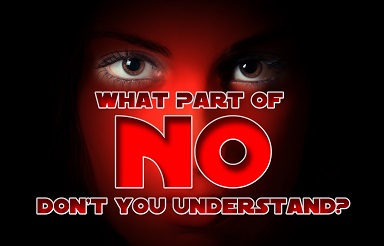Point Of Change Counselling
promoting change that heals
face-to-face, Skype or telephone appointments available

"Lyn" and "Ann" were sisters, but it was really hard to spot this when you met them. Lyn was obese, shy, lacking in confidence and nervous around people. She always dressed in baggy clothes in dull colours, never wore makeup and wore her hair long and usually over her face. She had never had a boyfriend. Ann, on the other hand, was the life of the party, who loved bright colours and clothes that drew attention to her attractive figure. She changed boyfriends as often as she changed her hair styles.
Yet, as different as they seemed, both girls owed their current self image to a common experience - they had both been subjected to sexual abuse by a family member when they were young. They had tried to cope with the effects of this trauma in very different ways: Lyn had set out to make herself unattractive and invisible, believing that this would help to protect her from any further unwanted sexual attention. Ann decided she was "damaged goods" so had nothing to lose any more. She was determined to hurt as many males as she could, using them sexually as she had been used, in an attempt to make somebody pay for her experience.
Children must be lying if they report sexual abuse, because they are too young to understand this concept. While children do have rich imaginations, specific sexual behaviours are beyond their knowledge.
Abusers will most often be strangers. Despite society's emphasis on stranger danger, the statistics show that a person is much more likely to be abused by someone known to them.
You can spot an abuser by their creepy, scary appearance. The very reason why sexual abuse is so tragically common is that the people responsible appear to be so ordinary. They get away with their predatory behaviour because they blend in so well.
If it's not actual sexual penetration, then it isn't abuse. Anyone can be damaged by being forced or coerced into any sexually related behaviour - kissing, fondling, oral sex or being made to watch sexual acts, will all leave scars.
If the person being abused doesn't speak up or object, then it's not abuse. Even acts of abuse can trigger sexual responsiveness such as an erection, but this is an instinctive physical response which in no way should be seen as willingness or permission.
Those who are sexually abused must have done something to encourage that behaviour. There is NO circumstance under which a child is responsible for the actions of an adult. NEVER. Similarly, there is NO justification for ever pressuring someone of any age into sexual contact which they do not freely and clearly choose.
Sexual abuse will damage the person for life. While the experience will certainly influence the personality and coping mechanisms the individual develops, with appropriate skilled support, such as working with a counsellor, the legacy of much sexual abuse can be lessened or eradicated completely.
These can vary greatly, depending on the age, gender, and cultural background of the person abused. For example, young children may regress to less mature behaviours such as thumb-sucking or bed-wetting, while older individuals may turn to substance abuse in an attempt to lessen the emotional pain, or may become aggressive and violent, or withdrawn and prone to depression. Sleep and eating patterns can change dramatically and physical and mental health can be negatively impacted.
Counselling can be invaluable in supporting victims of sexual abuse by:
Holding out consistent hope that change and healing are possible
Allowing the individual to choose how quickly (or slowly) they wish to move forward
Listening, listening, then listening some more, until their story is told
Not insisting that they trust the counsellor, but recognising that, since their trust has been violated by the abuse, only they can decide if and when they will be ready to trust again
Accommodating a wide range of responses (from anger to tears) without judgement
Supporting the individual to get in touch with their true feelings (which have often been numbed or denied) and to express them
At Point of Change Counselling, Ipswich, we have over thirty years of experience at supporting men, women and young people who have been impacted by sexual abuse. We would be happy to support you on your own personal journey towards recovery.
If you are suffering abuse, contact Alli at Point Of Change Counselling for an appointment.